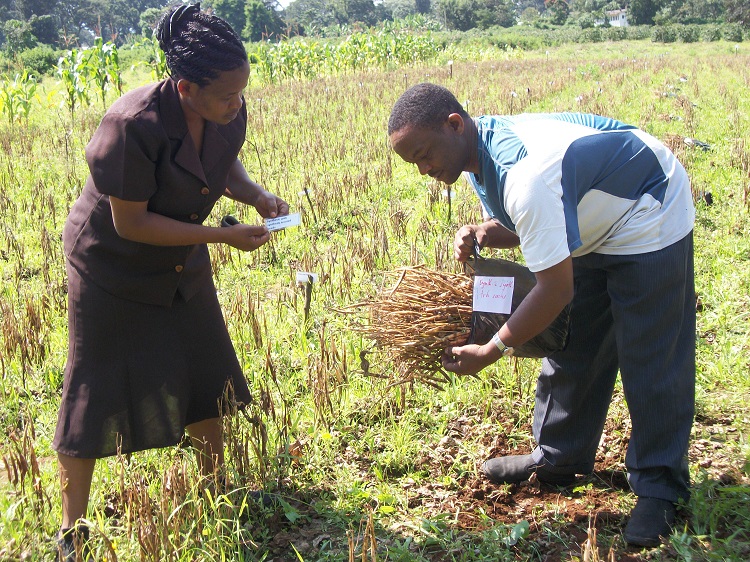
Research led by NRI scientists shows that extracts of plants with pesticidal properties effectively control insect pests while facilitating ecosystem services, plus they are less costly than synthetic pesticides. The research, published recently in open-access journal PLOS ONE, is good news for the smallholder farmers of sub-Saharan Africa, who are largely 'organic' farmers – by default rather than by choice – as their access to pest control and other resources is limited. Consequently, their crops suffer from severe insect damage, and their yields remain low.
Pesticidal plants – plants with properties that naturally deter or destroy pests – have been investigated for decades as a viable alternative to synthetic pesticides, though much of the investigation was only carried out in the lab. This resulted in gaps in knowledge concerning the uptake of pesticidal plant-derived extracts, the evaluation of their efficacy under field conditions, their economic viability and impact on beneficial insects, such as ladybeetles and spiders.
The PLOS ONE article, entitled 'Extracts from Field Margin Weeds Provide Economically Viable and Environmentally Benign Pest Control Compared to Synthetic Pesticides', by Mkenda et al, describes how teams of scientists, led by NRI's Steve Belmain and Phil Stevenson of NRI and Royal Botanic Gardens Kew, have been filling these gaps in knowledge. Together with partners from Kenya, Malawi, Tanzania and Zimbabwe, the teams have been carrying out field trials on extracts derived from four abundant weed species known to have pesticidal properties in Malawi and northern Tanzania. The work encompasses two projects led by NRI.
 The first project is called 'Safe and effective pesticidal plants for agroecological intensification of legumes'. Funded by the McKnight Foundation through its Collaborative Crop Research Program, it aims to increase data on pre- and post-harvest efficacy of pesticidal plants under African farm conditions and develop novel ways of helping farmers assess the potential efficacy of collected pesticidal plants. It also seeks to reduce potential consumer exposure to pesticidal plants, promote safe use and champion stakeholder development for pesticidal plant value chains.
The first project is called 'Safe and effective pesticidal plants for agroecological intensification of legumes'. Funded by the McKnight Foundation through its Collaborative Crop Research Program, it aims to increase data on pre- and post-harvest efficacy of pesticidal plants under African farm conditions and develop novel ways of helping farmers assess the potential efficacy of collected pesticidal plants. It also seeks to reduce potential consumer exposure to pesticidal plants, promote safe use and champion stakeholder development for pesticidal plant value chains.
The second is a project known as 'Options' or 'Optimising Pesticidal Plants: Technology Innovation, Outreach and Networks', which aims to optimise the way pesticidal plants are used and to ensure that scientific innovations developed are appropriate, sustainable and effective.
This ground-breaking research points towards a good-value, locally-sourced, sustainable and effective pest control that can be produced near farmers' fields in Africa, thereby improving their yields and livelihoods. Read the full article here.
Project links: Safe and effective pesticidal plants for agroecological intensification of legumes | Optimising Pesticidal Plants: Technology Innovation, Outreach and Networks
News item: NRI signs MoU with The Nelson Mandela Africa Institute of Science and Technology in Tanzania

